
Action Plan for Implementing the Strategy for the Deoccupation and Reintegration of Crimea. What has changed?
On April 4, 2023, the Cabinet of Ministers of Ukraine (CMU) approved Order No. 288-r,...
03 May 2023
For almost three months lasted the monitoring in three localities of Rivne Oblast within the framework of the innovative instrument Local Human Rights Index.
The monitoring team worked on all nine areas of the monitoring instrument: community security, environment, healthcare, standard of living, education and cultural development, social protection for vulnerable categories of the population, employment and work conditions, as well as the right to information and good governance.
UHHRU involved a new partner in the monitoring – the legal clinic of a leading local university, the National University of Ostroh Academy. This allowed students and professors to gain practical experience and to contribute to the improvement of local public governance.
Results
Public events following the monitoring in Rivne, Ostroh and the Piskiv united territorial community were recently held. Unlike many other studies, the Local Index does not end with a complicated and convoluted report – its results are always clear and contain qualitative assessment.
Rivne – 61%
Ostroh – 52%
Piskiv UTC – 22%
It allows us to clearly see where local authorities do their best to guarantee the rights of citizens. It should be noted that the Index provides a mechanism for balancing the performance indicators depending on the capabilities of certain localities, taking into account their specifics, from large cities to rural communities.
However, it’s not quantitative indicators that matter most, but the quality of the monitoring. Monitoring reports, as always, are proving to be a useful governance tool for improving local governance practices. They include not just justifications of evaluations, but also detailed recommendations based on local specifics and best national practices of self-governance.
Special emphasis was placed on the evidence behind the information given in Index reports: they give reasons for particular results, provide hyperlinks to and details of local decisions, and illustrate the results of experiments conducted and documents studied.
City of Rivne
The regional center of Rivne Oblast got 61% in the area of human rights observance. This indicator is higher than, for instance, the last year’s assessment of the authorities in Uzhgorod. Nevertheless, there’s much work to be done.
Among the positive practices in the Rivne community, monitors name: effective platforms and mechanisms for involving the public in local policy planning, such as “Public Budget” and “Council of Reforms of Rivne”; convenient and developed system for providing administrative services to the population at the Rivne Center of Administrative Services; active inclusion of people with disabilities in employment and social integration; effective application of the mechanism of public works; and introduction of a public order protection system among Rivne residents in cooperation with the police.
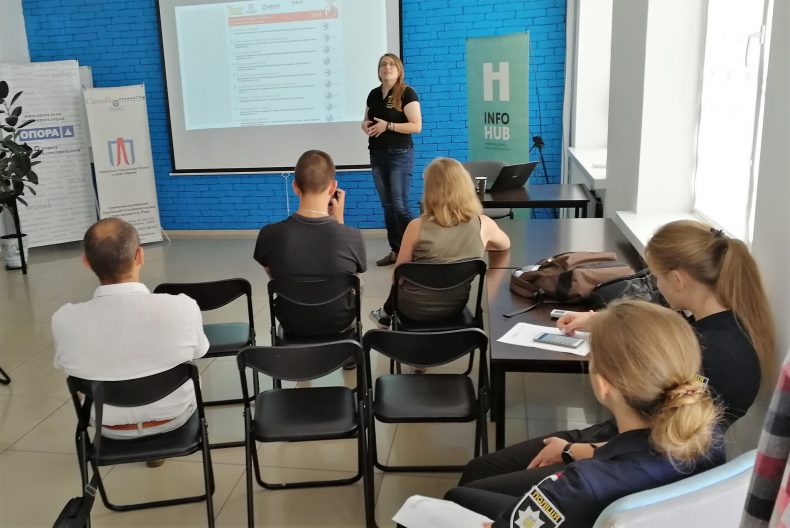
Olena Romanova, lawyer of UHHRU Rivne-based legal aid center and member of the monitoring team: “The positive aspect here is involvement of Rivne in world and Ukraine-wide practices: introduction of CCTV on the streets of the city and other security measures; support for cultural public initiatives; efforts aimed at making the city more attractive to tourists. The tasks that still need work include: implementation of inclusive education and the requirements of universal design, fire prevention systems in Rivne schools, expansion of the pre-school education network, accessibility of websites and information for people with disabilities, and realistic development programs. In general, some indicators lacked only tiny amounts for the passing grade, which means that these areas are being worked on, and city authorities should only make some pinpoint efforts to improve the situation.”
Professor Andriy Galay, Project Coordinator for the UHHRU Local Human Rights Index: “We have noticed several good practices in Rivne (such as integration of people with disabilities, some forms of public participation). My personal impression is that the progressive community has much to offer to the authorities, but some people in the government are still acting Soviet-style – they only listen to their superiors.”
Recommendations for strengthening the capacity of local government in Rivne:
City of Ostroh
The quality of observance of human rights in the activities of Ostroh city government was rated at 52%. We believe that the failure to form a united territorial community within the city limits financial and organizational opportunities for improving the lives of residents.
Among the positive practices of the Ostroh community, monitors note: transparency of local authorities and their willingness to cooperate; cooperation with the public in forming and implementing the program for controlling the population of homeless animals in the city; active work in the field of education and cultural development; attention of local authorities to environmental issues and creation of a comfortable living environment; stimulation of local business through tax benefits and entrepreneurship support.
Maria Tsypyashchuk, Coordinator of UHHRU Rivne-based LAC: “During the monitoring, we saw that local authorities are putting a lot of effort into ensuring decent and comfortable living for Ostroh residents. Of course, due to its specific circumstances, the city has a lot of problems that need to be addressed. We hope that monitoring results will help reveal the steps necessary for further development based on respect for human rights.”
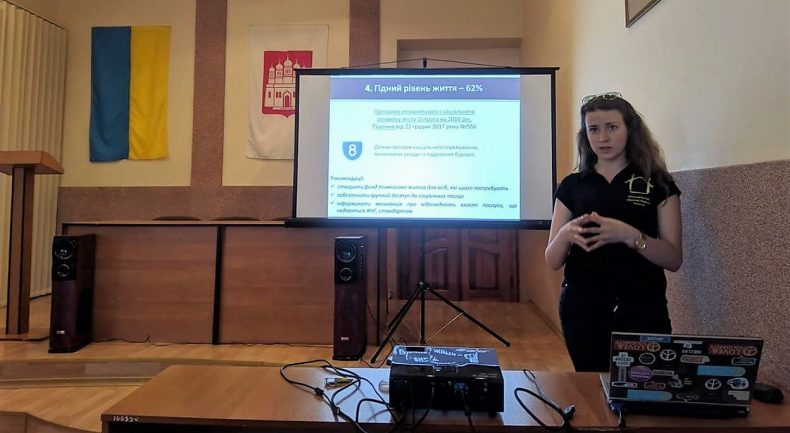
Andriy Galay: “Ostroh proved to be quite open and ready to improve the life of its community. We advise the authorities to consider involving the public, bossiness and especially the University in decision making”.
Recommendations for strengthening the capacity of local authorities in Ostroh:
Preliminary monitoring results give the Piskiv UTC 22%, which is quite a modest mark for the quality of local governance. Despite the progress due to the decentralization reform (particularly the new school and a street lighting project funded through an international grant), the life in this group of Polesia villages has not improved by much.
Monitors name such positive practices of the Piskiv community as: the use by local authorities of the public works mechanism simultaneously allowed them to solve the issue of employment and care for those who need it; active members of ATO veteran community became public inspectors of fish protection, which shows involvement of the public in the formation of local policy; a social project on free food for children belonging to vulnerable categories has been implemented.
Olena Romanova: “Due to the fact that monitoring was simultaneously conducted in the regional center, district center and a small UTC, we have determined the specific circumstances of the latter and reflected it in our recommendations. We hope that this will help local authorities of the Piskiv UTC to work more efficiently.”
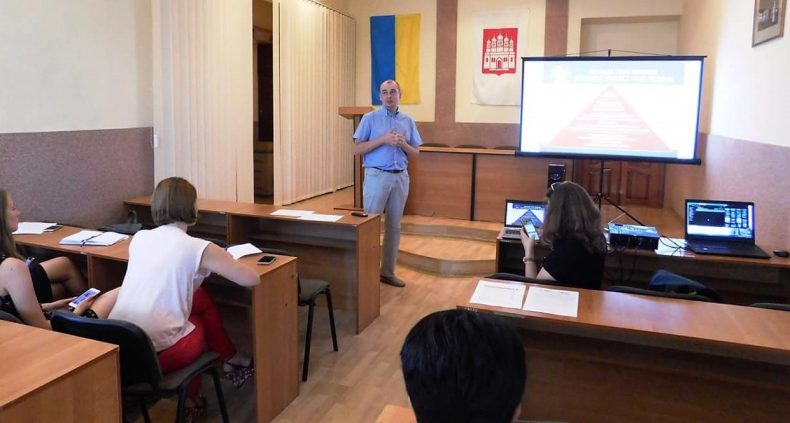
Andriy Galay: “Decentralization not only provides additional opportunities to local authorities, but also puts more responsibility on them for the life of their communities. Even initially low marks are not a problem as long as there is willingness to improve. The Local Index provides not only ratings, but also recommendations on how to improve.”
Recommendations for strengthening the capacity of local authorities in the Piskiv UTC:
We give the remarks of Oksana Sytnytska, Deputy Mayor of Ostroh on Humanitarian Issues, as the generalized feedback from local authorities: “We can see how thorough the monitoring was. In truth, we already know most of the problems existing in our city, but a second opinion will help us better understand what to work on and what successful practices to use. We look forward to the full text of the report.”
The infographics with preliminary monitoring results are now available on the National Human Rights Index webpage. Full reports will be published there within the next few days.
Andriy Galay, Professor, Project Coordinator of the Local Human Rights Index, Ukrainian Helsinki Human Rights Union
The Ukrainian Helsinki Human Rights Union promotes development of a humane society based on respect for human life, dignity and harmonious relations between man, state and nature, through the creation of a cooperation platform for members of the Union and other participants of the human rights movement.
The study was carried out by representatives of the local UHHRU legal aid center together with the legal clinic of the National University of Ostroh Academy. The monitoring was carried out within the framework of the grant program Public Monitoring of Local Self-Government Bodies for Better Observance of Human Rights implemented with the support of the American people, provided through the United States Agency for International Development (USAID) within the framework of the New Justice program
The American people, through the U.S. Agency for International Development (USAID), have provided economic and humanitarian assistance worldwide for 55 years. In Ukraine, USAID’s assistance focuses on three areas: Health and Social Sectors, Economic Growth, and Democracy and Governance. Since 1992, USAID has provided technical and humanitarian assistance to Ukraine amounting to $2 billion. For additional information about USAID programs in Ukraine, please call USAID’s Development Outreach and Communications Office at +38 (044) 521-5741. You can also visit the USAID website at http://ukraine.usaid.gov or Facebook page at https://www.facebook.com/USAIDUkraine.
The U.S. Agency for International Development (USAID) New Justice program is implemented since October 2016 and is based on the achievements of previous USAID projects – Ukraine: Rule of Law and Fair Justice. The goal of the program is to support the judiciary, the Government, Parliament, the lawyer community, law schools, civil society, media and the public in creating conditions for an independent, accountable, transparent and effective justice system that would ensure the rule of law, and in the fight against corruption. For more information about the program, please visit www.newjustice.org.ua or call +38 (044) 581-3303.
Cover photo – wikimapia.org
If you find an error on our site, please select the incorrect text and press ctrl-enter.

On April 4, 2023, the Cabinet of Ministers of Ukraine (CMU) approved Order No. 288-r,...
03 May 2023
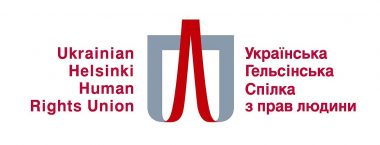
Scheduled presidential election in the Republic of Belarus on 9 August 2020 resulted in a...
16 April 2021

What is the difficulty with ensuring security during peaceful gatherings of the LGBTQ+ community? What...
24 February 2021
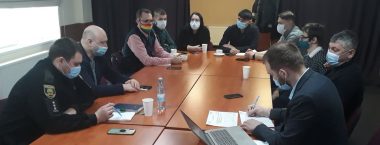
On February 19, 2021, an event entitled “Security during LGBTQ+ peaceful gatherings” took place in...
21 February 2021